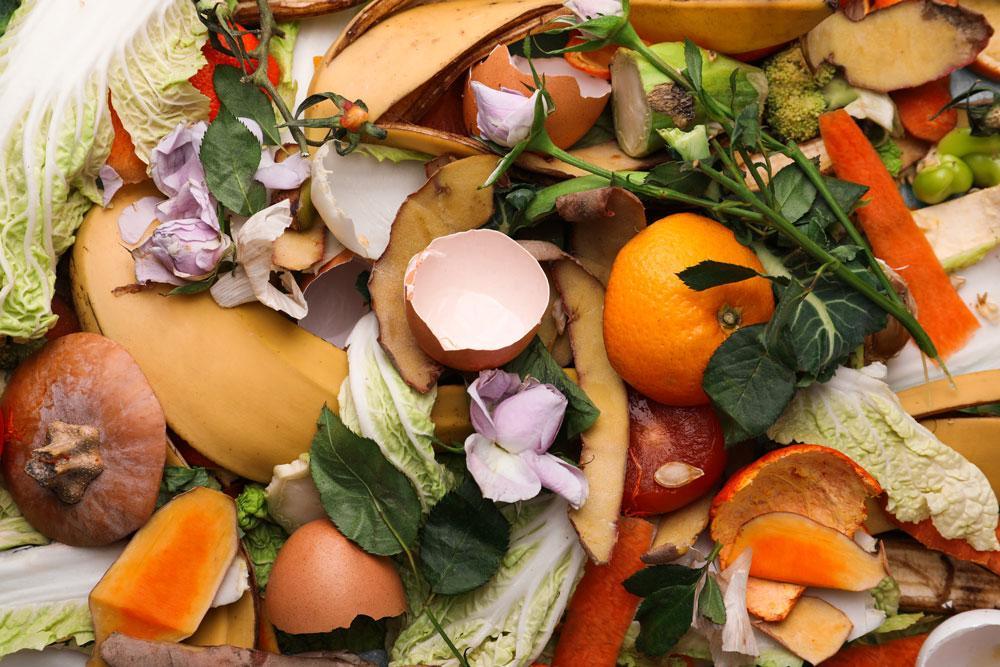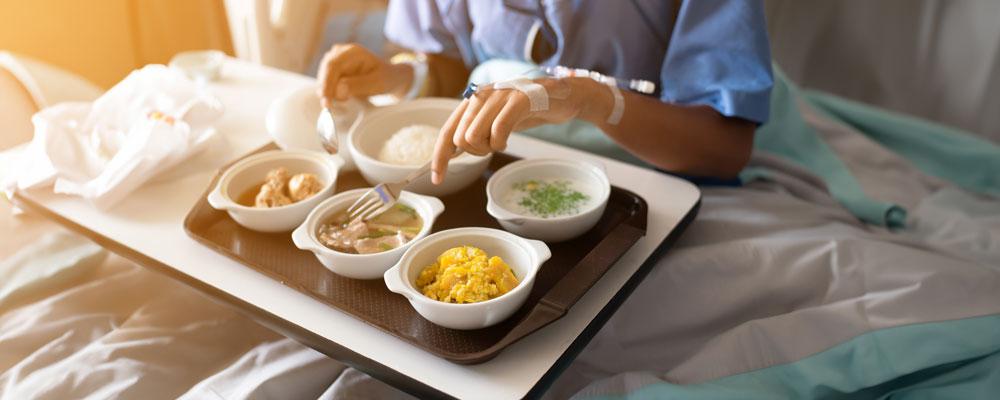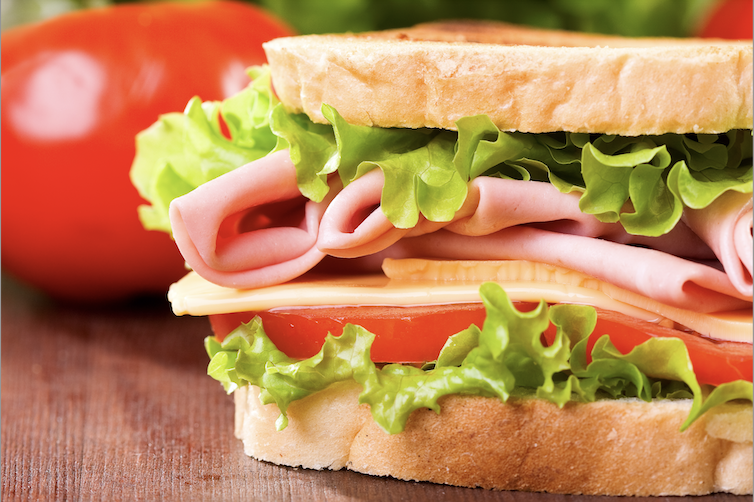NHS Supply Chain has worked with iFM Bolton, who provide facilities services to Bolton NHS Foundation Trust, to help reduce food waste at ward-level to just six per cent annually, resulting in an estimated annual saving of over £100,000
One third of food is wasted each year, this is responsible for six per cent of all global greenhouse gas emissions. NHS Supply Chain is working in partnership with the NHS to become the world’s first carbon net zero national health system by 2040, one area it is offering support in is the reduction in food waste.
According to the Greener NHS ‘delivering a net zero NHS’ strategy, food and catering accounts for six per cent of the greenhouse gases produced by the NHS. Reducing food waste has been identified in this strategy as one of the ways to reduce CO2 emissions produced by the NHS and become more sustainable.
The strategy document also notes the Independent Review of NHS Hospital Food published in 2020, which calls for a more sustainable approach to food procurement and waste.
A new method
Since 2018 NHS Supply Chain’s food team has been working on trialling a new method of analysing and reducing food waste at NHS hospital sites. It works with ready prepared meals and involves close analysis of purchasing data, needs and requirements in order to find efficiencies.
The method has been trialled at one NHS trust to date – Bolton NHS Foundation Trust. The trust used NHS Supply Chain’s chilled ready prepared meals to feed patients, ordering on average 15,665 portions of food each week to one site covering 24 wards.
NHS Supply Chain’s food team worked closely with the trust to identify efficiencies to reduce packaging and food waste when feeding patients.
Toby Cheetham, Account Manager at NHS Supply Chain: Food, said: “It can be hard to predict what patients want from week to week. Moving from a cook-chill method to a cook-freeze method we could see would work really well for Bolton NHS Foundation Trust. Meals would have a longer shelf life and so when patients put in orders later in the week, food wouldn’t be wasted by passing it’s sell-by date.”
The importance of quality produce
The NHS Supply Chain team has been impressed by the quality of frozen products from suppliers and how they regenerate in recent years.
NHS Supply Chain’s in-house nutritionist Danielle Smith said: “We know that national public health guidelines recommend that frozen fruit and vegetables can contribute to your five a day. It can be a great alternative to fresh, so switching from a cook-chill to a cook-freeze operation in a trust doesn’t necessarily impact the nutritional quality of the product.”
Closer analysis of dietary and menu requirements, as well as important taste tests were undertaken, with samplings carried out over a period of several weeks involving the facilities and catering team, patients, and the board at the trust. The results were positive.
Beverley Sharrocks, iFM Bolton Hotel Services/Catering Manager, commented: “We carried out a number of tasting sessions with staff, patients, and visitors on several occasions without any form of identification of the company. There was a front runner who scored better than the others on quality and taste when regenerated, which has a massive impact on patient nutrition, reducing the amount of plate waste.”
The supplier in question best matched the needs of the Bolton NHS Foundation Trust, how a range of reasons, however other suppliers are available in order to match a breadth of needs across the NHS.
The NHS Supply Chain team made changes in response to the feedback. Certain dishes that didn’t score as highly were switched for others, and those that had a very positive reception were noted for future use.
Another big part of reducing ward-level food waste at this site was the move to different pack sizes which suited the needs of the team at the trust. Moving to a supplier with a wider range of sizing options, after tastings, quality tests, and further analysis, was key to achieving a reduction in food waste.
Matching dietary needs
Further close analysis of the menu and dietary needs, including consultation with NHS Supply Chain’s in-house Nutritionist, who has extensive knowledge of the product range, resulted in a full menu switch proposal. This led to a greater range of options per day to suit dietary needs, like vegan and gluten free, with options to suit other allergies.
Beverley Sharrocks said: “Reducing the amount of food waste whilst still being able to provide a nutritious, varied menu for our patients is so important. It gives me so much pleasure in knowing that any savings can be invested elsewhere in our trust.”
A new future
Using this method, NHS Supply Chain has been successfully able to reduce food waste at ward-level to just six per cent annually, which is estimated to save £101,000 each year.
Sharrocks continued: “We wanted to reduce waste streams and find cost savings, both of which have been achieved. Through careful menu planning, working with a supplier who recognises safety, and recognising that the quality of patient food should not be compromised.
“We all know food waste carries a cost and when we moved over to a cook chill method of food provision we were faced with purchasing from a supplier that delivered very limited portion pack sizes. This meant that there would always be waste to some limit at ward level and within the department as we didn’t have a retail outlet to use up any food over demand. Implementing a frozen food option with various pack sizes means that no food is discarded within the department, it stays in the freezer and the pack sizes are calculated to send out the correct portions to the ward.
“The team at NHS Supply Chain: Food has the agility and knowledge to support with the transferral of one meal provision to another.”
The new menu switch was made in February last year, however, the support didn’t stop there. The team continue to evaluate the results and make changes to suit the team at Bolton NHS Foundation Trust.
NHS Supply Chain now offers menu service to other NHS trusts, enabling them to order ready prepared meals, meaning the team can analyse orders and data and discuss options to deliver food waste savings and financial savings too.
Supporting a sustainable NHS
The team at NHS Supply Chain: Food have taken the time to develop this new service over 18 months and are very proud to make it available to NHS trusts across the country.
As Kirstin Morris, new Head of Commercial at NHS Supply Chain, comments: “It was a true cross-functional effort to put this together, alongside a close collaboration with the team at Bolton NHS Foundation Trust on the trial. It’s fantastic to see this now being offered more widely. We really want to support the NHS to reduce food waste – a key element of the NHS strategy to achieve net-zero. However, to us it’s about more than just waste, and in order to support other sustainable efforts we have also launched a plant-based range of recipes, including only vegan and vegetarian dishes, which supports a low-carbon diet.
“Food procurement can be more sustainable, and we’re always looking for new ways to be more transparent, share more information, and offer new services that drive us all towards a sustainable future.”
For more information on this service, or other sustainability support, please email food@supplychain.nhs.uk or speak to your NHS Supply Chain: Food Account Manager.





